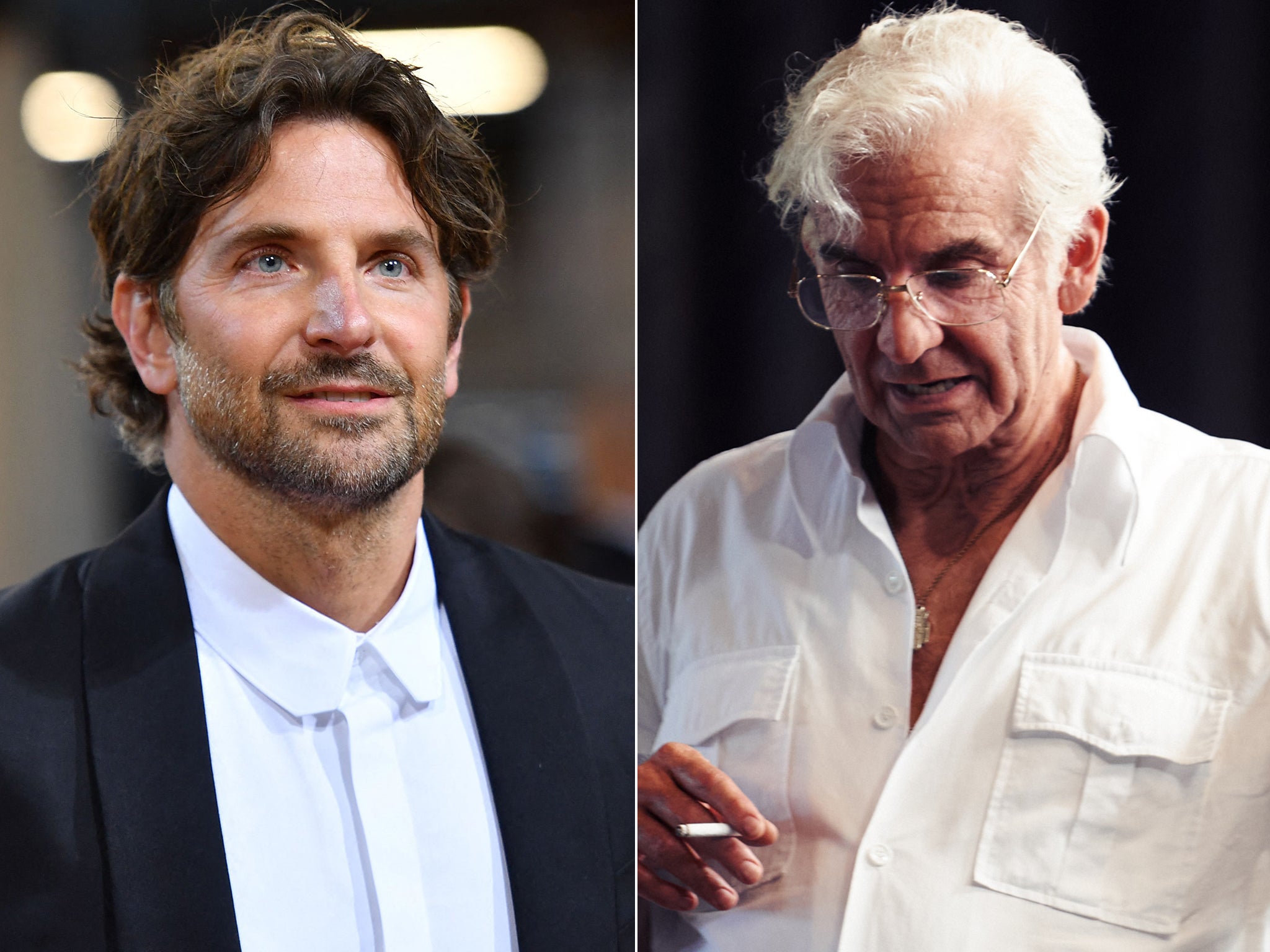Did Bradley Cooper really need a fake nose to look like Jewish composer Leonard Bernstein?
This was the worst of all options


Your support helps us to tell the story
From reproductive rights to climate change to Big Tech, The Independent is on the ground when the story is developing. Whether it's investigating the financials of Elon Musk's pro-Trump PAC or producing our latest documentary, 'The A Word', which shines a light on the American women fighting for reproductive rights, we know how important it is to parse out the facts from the messaging.
At such a critical moment in US history, we need reporters on the ground. Your donation allows us to keep sending journalists to speak to both sides of the story.
The Independent is trusted by Americans across the entire political spectrum. And unlike many other quality news outlets, we choose not to lock Americans out of our reporting and analysis with paywalls. We believe quality journalism should be available to everyone, paid for by those who can afford it.
Your support makes all the difference.How do you make Bradley Cooper, who is not Jewish, look like Leonard Bernstein for the biopic Maestro?
Well, Jews have giant noses, right? So give Bradley Cooper a giant prosthetic nose.
That’s how Cooper — who directs the film, as well as starring in it — seemingly decided to handle his Jewification, anyway. And as a Jewish guy with a largish nose myself, I really wish he had not. Using prosthetics to emphasize the physical difference between Cooper and Bernstein effectively turns Jewish people into their physical characteristics. It makes us caricatures.
Jewish representation in Hollywood has a complicated and sometimes difficult history. In contrast to Black and Asian people, Jewish creators and actors are generally just seen as white onscreen. As a result, they’ve had a substantial and influential presence in the film industry for a long time. Still, the representation of Jewishness in film has often been fraught.
Performers like Lauren Bacall, Harrison Ford, and Scarlett Johansson, who don’t look stereotypically Jewish, generally play non-Jewish characters. Johansson was actually referred to as a perfect “Aryan” in Ghost World, one of her first screen roles.
Performers whose appearance fits Jewish stereotypes more closely, in contrast, are frequently linked to invidious and uncomfortable caricatures. Peter Lorre (born László Löwenstein) was cast as a child predator in M. In Casablanca, playing a man named Ugarte, he is an oily, corrupt businessman defined by greed. Paul Reiser in Aliens plays the Ugarte-like, smooth-talking company man who betrays his own racial kin. Woody Allen, in most of his own films, plays a neurotic nebbish.
There are some interesting counter-examples. Jeff Goldblum — who often plays a neurotic nebbish — got to be the Jewish action hero in Independence Day. But in general, Jewish people onscreen are only recognizable as Jewish when they play into less-than-flattering ideas of Jewishness. If they’re conventionally attractive, heroic, graceful, they play people who aren’t Jewish. If they’re less conventionally attractive, they are Jewish stereotypes.
Given that dynamic, it could have been mildly subversive for Cooper to play Bernstein. Daniel Craig, an international sex symbol who is not Jewish, played a heroic anti-Nazi Jewish resistance fighter in Defiance. The movie effectively insisted that Jewish people could be the heroes of their own Holocaust stories, rather than relying on gentile saviors. And part of that message was that Jewish people could look like that.
Bradley Cooper is also widely recognized as a good-looking guy. Having him play a Jewish man could have conveyed the (accurate!) message that all Jewish people don’t look alike. Especially since Cooper — just as Cooper, with his own nose — looks like he could be Jewish easily enough; my (no doubt biased) wife even says I look a little like him. Jewish people — sometimes we look like non-Jewish people! It’s almost as if we’re all human.
Alternately, as one Twitter commenter wrote, “If the nose is so important to the character that it needs to be featured, just cast someone with that sort of nose.” Was Cooper seeking authentic features? Okay. Find someone who has authentically lived with those features for their whole lives.
Instead, Cooper went for the worst of all options. He didn’t acknowledge that Jews can look lots of different ways. He didn’t find someone who was Jewish to play a Jewish-looking person. He just decided to treat being Jewish as a kind of monster-makeup stunt. That says that Jewish people are unnatural, artificial and fake. It also says that Jewish men are so ugly that the famous, handsome actor has to deface himself to play one.
I’m sure to many this seems like a trivial non-issue; who cares about Bradley Cooper’s Hollywood biopic anyway? Surely, with abortion rights under assault, Covid cases rising, and democracy in danger, there are more important things to talk about. And yes, Bradley Cooper’s nose is not the most serious problem facing the world right now, nor even the most serious problem facing Jewish people. But stereotypes do have real-world consequences.
I look conventionally Jewish — I’ve got a big nose, prominent features, curly hair. As a result, when people online want to dismiss what I say, or dislike an article I’ve written, they’ll send me headshots of myself with derogatory comments. When I point out that this is antisemitic, they laugh and say, “No, you’re just ugly.” It’s a good bet that responses to this article will include people insulting my appearance. Jewish people are supposed to be unattractive; our faces are supposed to be fair game. And if we object, it’s only more evidence that we are ridiculous and should be despised.
A biopic of a celebrated, talented Jewish artist shouldn’t encourage these kinds of antisemitic stereotypes. But Cooper appears, unfortunately, to have gotten stuck on those stereotypes himself. Asked to portray a complicated musician, composer and human being, Cooper couldn’t see past Bernstein’s nose. That doesn’t bode well for the quality of the biopic. And it’s not great for Jewish people either.